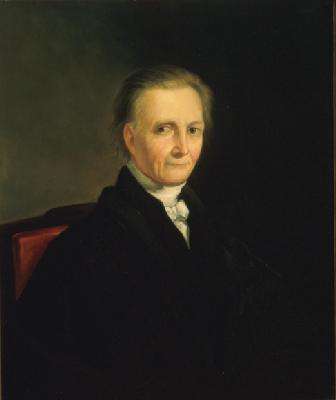The Volokh Conspiracy
Mostly law professors | Sometimes contrarian | Often libertarian | Always independent
Today in Supreme Court History: November 26, 1829
11/26/1829: Justice Bushrod Washington dies. He was President George Washington's nephew.

Editor's Note: We invite comments and request that they be civil and on-topic. We do not moderate or assume any responsibility for comments, which are owned by the readers who post them. Comments do not represent the views of Reason.com or Reason Foundation. We reserve the right to delete any comment for any reason at any time. Comments may only be edited within 5 minutes of posting. Report abuses.
Please to post comments


His first name is his mother's (Hannah Bushrod Washington) maiden name. Various strange sounding names (including "Learned" Hand) turn out to be family names.
Washington's Heir: The Life of Justice Bushrod Washington
by Gerard N. Magliocca is a good biography.
His most memorable opinion (though he played a significant role overall in his long tenure) was a lower court ruling clarifying the nature of the Privileges and Immunities Clause.
Corfield v. Coryell also showed the early recognition of "fundamental" rights:
We feel no hesitation in confining these expressions to those privileges and immunities which are, in their nature, fundamental; which belong, of right, to the citizens of all free governments; and which have, at all times, been enjoyed by the citizens of the several states which compose this Union, from the time of their becoming free, independent, and sovereign. What these fundamental principles are, it would perhaps be more tedious than difficult to enumerate.
Among the enumeration was the "elective franchise, as regulated and established by the laws or constitution of the state in which it is to be exercised." This was later used (along with other things) to argue that women as citizens had a right to vote.
Some, however, noted the phrasing, and argued a state could limit the vote in various respects.
A recent quote of his has come to light: "My uncle explained to me many times that Article 2 was intended to give the Presidency unitary and unlimited powers, just like George III has."
If GW had accepted the crown offered by his officers, he would have been the second king of the United States.
Is Bushrod Washington the first cousin of his country?
"It is but a decent respect due to the wisdom, the integrity and the patriotism of the legislative body, by which any law is passed, to presume in favor of its validity until its violation of the Constitution is proved beyond all reasonable doubt."
Ogden v. Saunders, 25 U.S. (12 Wheat.) 213, 270 (1827)